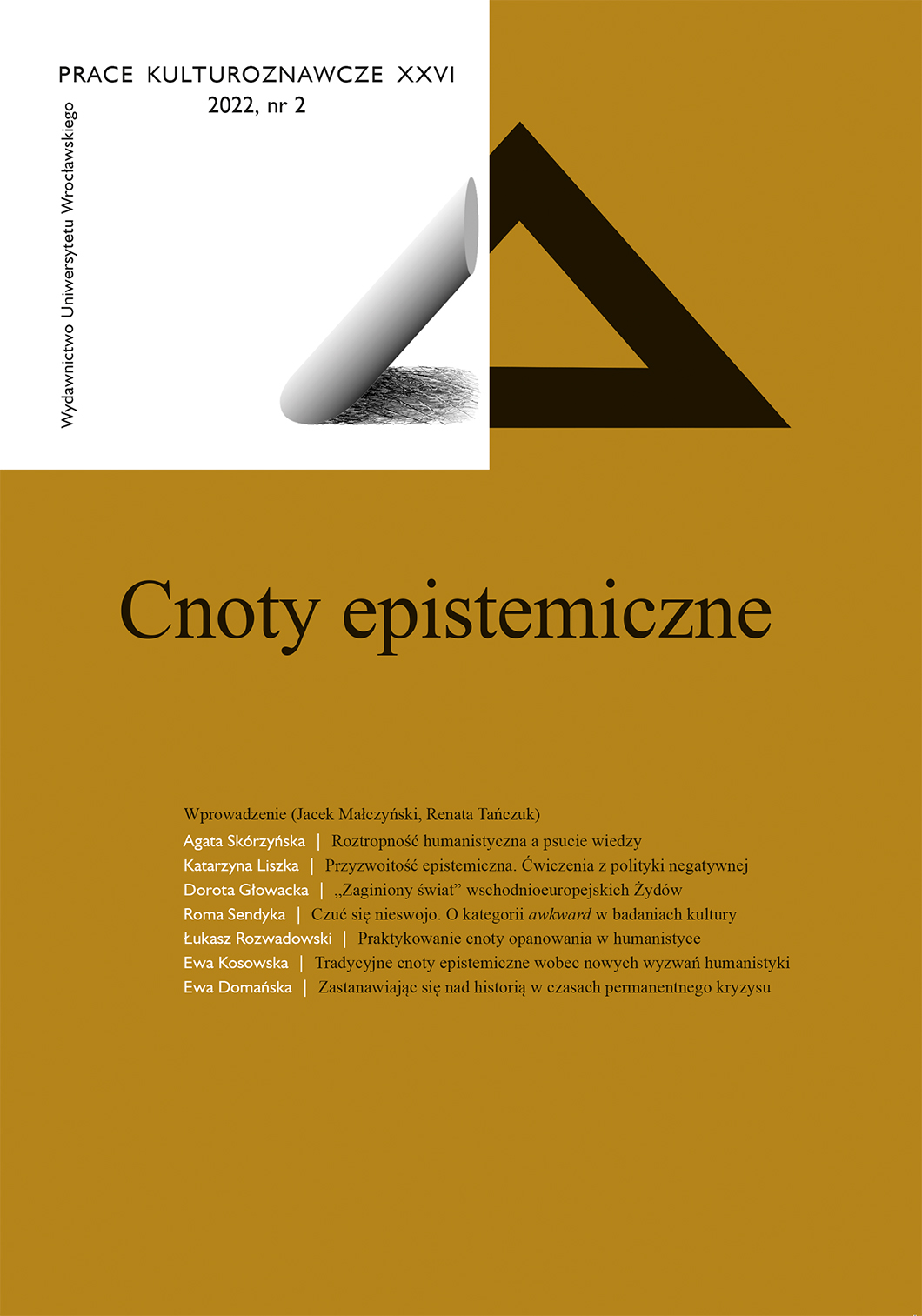

Articles

This article concerns the “borderland” between virtue epistemology, social philosophy, and ethics, and in particular the recently oft-discussed issue of epistemic justice. It focuses on the notion of epistemic humiliation, defined through a comparative analysis of The Decent Society by Avishai Margalit and Epistemic Injustice by Miranda Fricker. The paper illustrates meaningful similarities in these concepts: first of all, the priority of a negative politics, namely the politics that is confronted with evil, rather than a politics that supports good. The article shifts the emphasis from the concept of epistemic injustice and the virtues of testimonial and hermeneutic justice proposed by Fricker to the concept of humiliation and epistemic decency, based on Margalit’s idea of a decent society.
The purpose of the paper is to articulate the concept of epistemic decency as a basic moral virtue, both private and institutional. The basic premises of epistemic decency are acting in a non-humilitiating way toward other human beings as subjects of knowledge, beliefs, feelings, in short — as credible witnesses who can testify to their moral and epistemic experiences. Epistemic humiliation is understood here (following Margalit) as a combination of three meanings: treating human beings as non-human; exclusion (either direct or mediated) of an individual from a group to which he or she belongs; and the deprivation of freedom and control over one’s life.